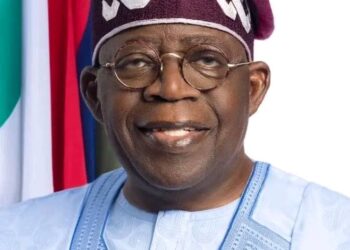Minister of Education, Adamu Adamu, has expressed concern over the country’s high rate of illiteracy, saying some 60 million Nigerians, or 30 percent of the population, cannot read or write. Adamu said this yesterday at the opening of the 2017 Nigeria’s Annual Education Conference held under the titled: “Achieving Inclusive Education through Innovative Strategies.” According to him, Nigeria will not achieve its development aspirations until it checks the high level of illiteracy. The minister, who was represented at the conference by the Permanent Secretary of the ministry, Sunny Echono, said females accounted for nearly 60 per cent of the country’s illiterate population.
https://www.canva.com/design/DACnqPdzGDw/view
“Therefore, to win the war against illiteracy,” he said, “Nigeria should focus intensely on girls and women.” He said: “The most expedient approach is through selective, intensive and nationwide ongoing campaign against illiteracy, targeting states and groups that have the highest levels of illiteracy, with girls and women as the main target. “If a minimum of 10 literacy centres could be established in each of the 9,572 wards with each centre enrolling a maximum of 30 learners in two sessions per annum, 5.7 million adults would be made literate at the end of each year under the national literacy campaign.
Thus, about 23 million people would be literate.” He noted that over 90 per cent of federal and state government annual appropriations for the sector were committed to payment of staff salaries. “Less than 10 per cent is for capital projects and procurement of teaching materials.
This is not acceptable,” he said. Speaking at the event, the British High Commissioner in Nigeria, Paul Arkwright, said his government through UKaid was helping to enforce sustainable development of teachers in Nigeria and ensure they become well educated. He said UKaid was supporting integrated groups in girls’ education, noting that 40 per cent of Nigerian students attended private schools. He said UKaid would be supporting 100,000 children in Yobe and Borno states, and 800,000 girls across the country.
Th e World Bank representative at the conference Tunde Adekola, said demography should not hinder a Nigerian child from accessing quality education. He said the World Bank was at the verge of starting in Nigeria a project called Education For All. “To achieve quality education, Nigeria needs more resources so both state actors and non-actors should work together and the impact of financial funding will be greater. “Openness, transparency and accountability is a major factor that will improve the education sector and this is not achievable without data,” he said. (Premium Times)



